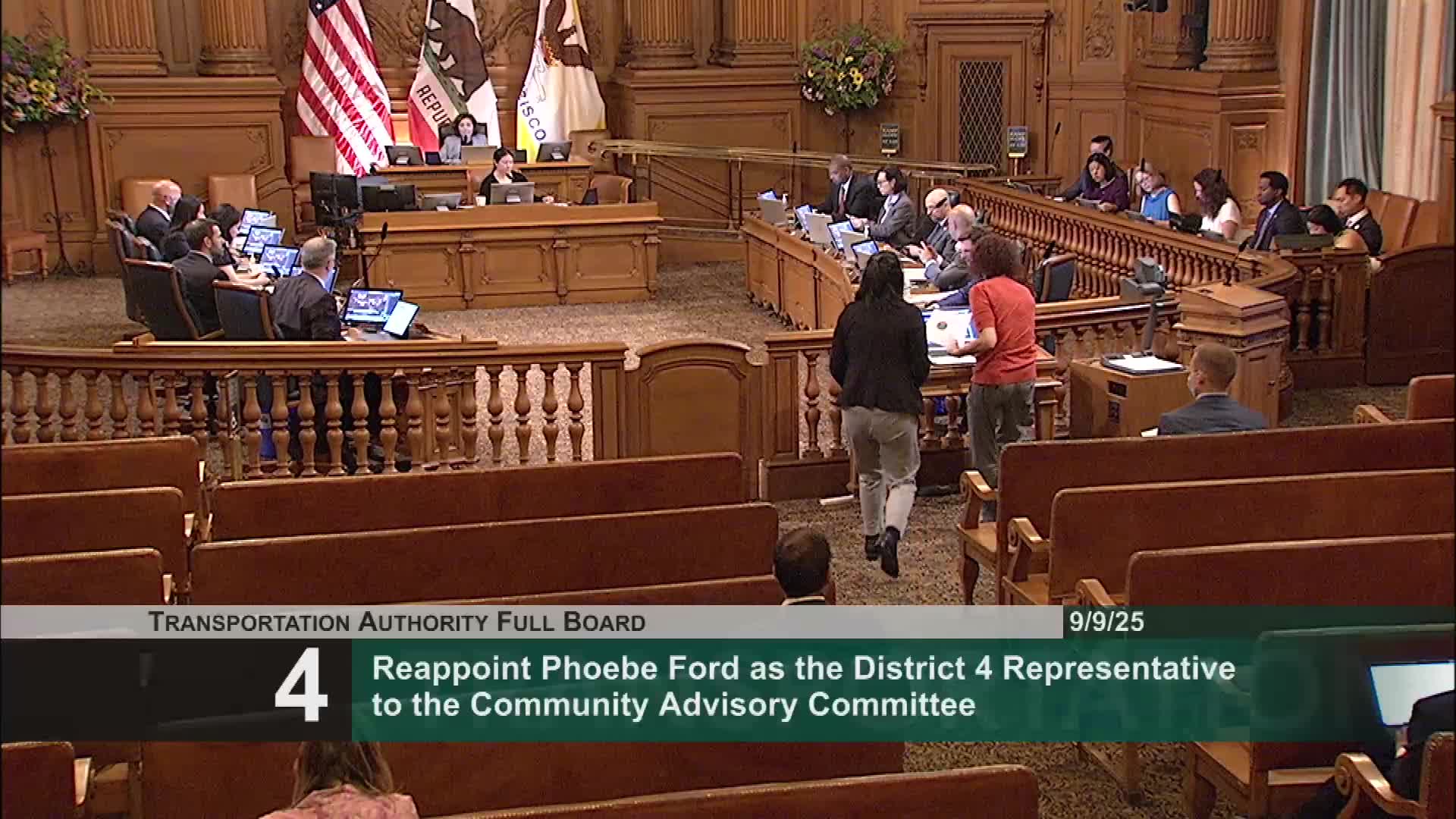Article not found
This article is no longer available. But don't worry—we've gathered other articles that discuss the same topic.
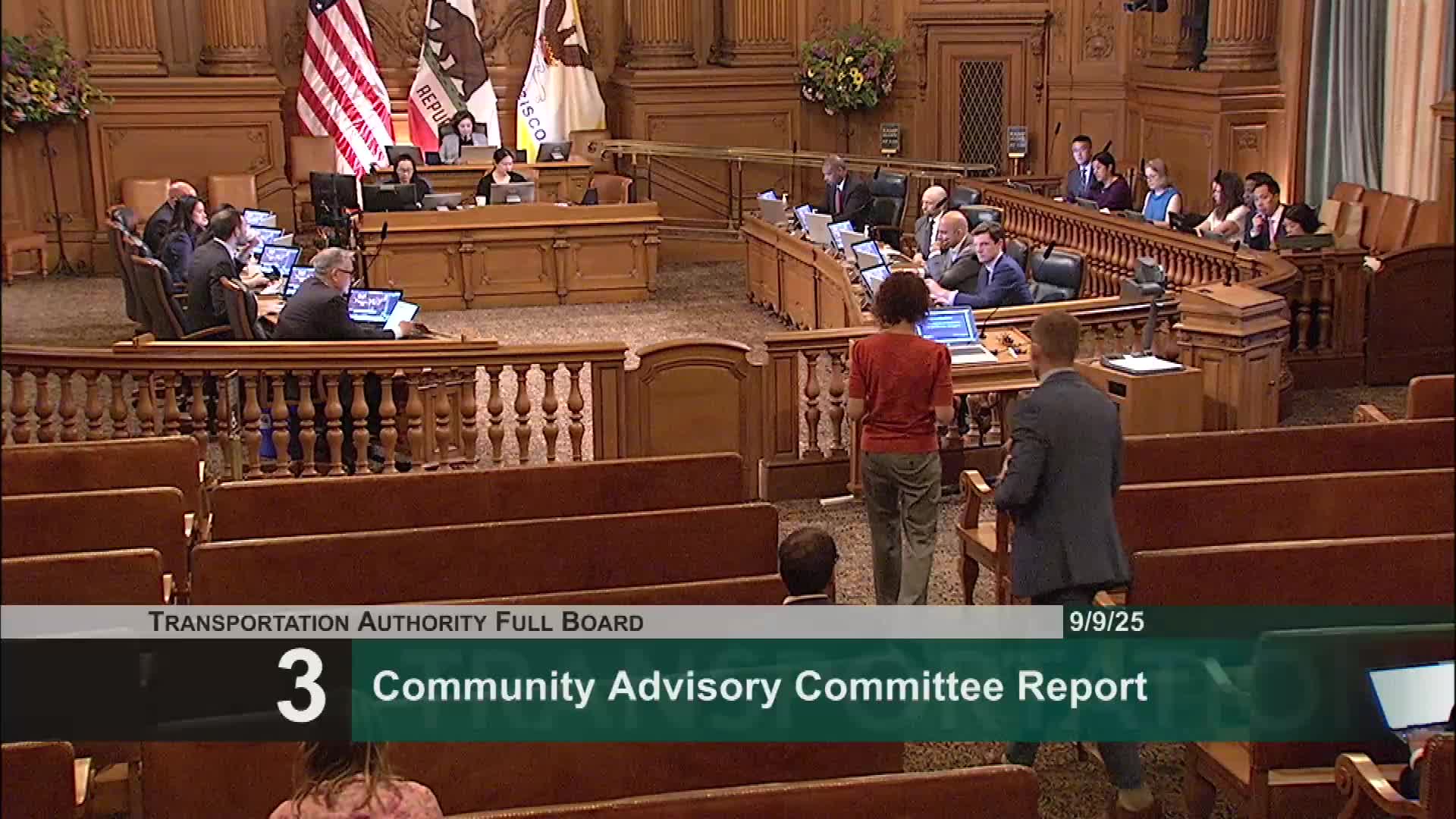
Board unanimously reappoints Phoebe Ford as District 4 representative to Community Advisory Committee
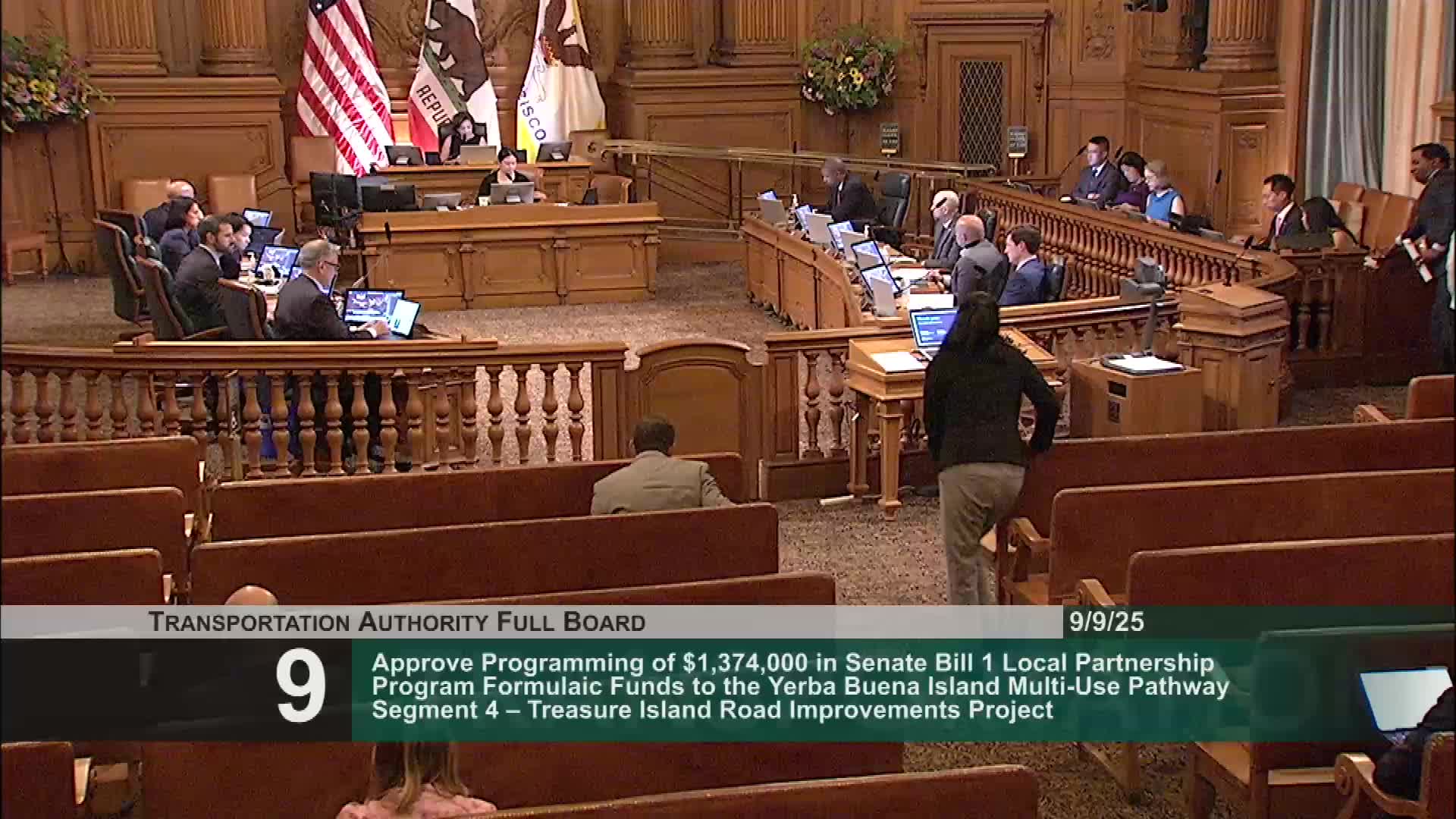
Board adopts conceptual safety-focused autonomous vehicle permitting framework report
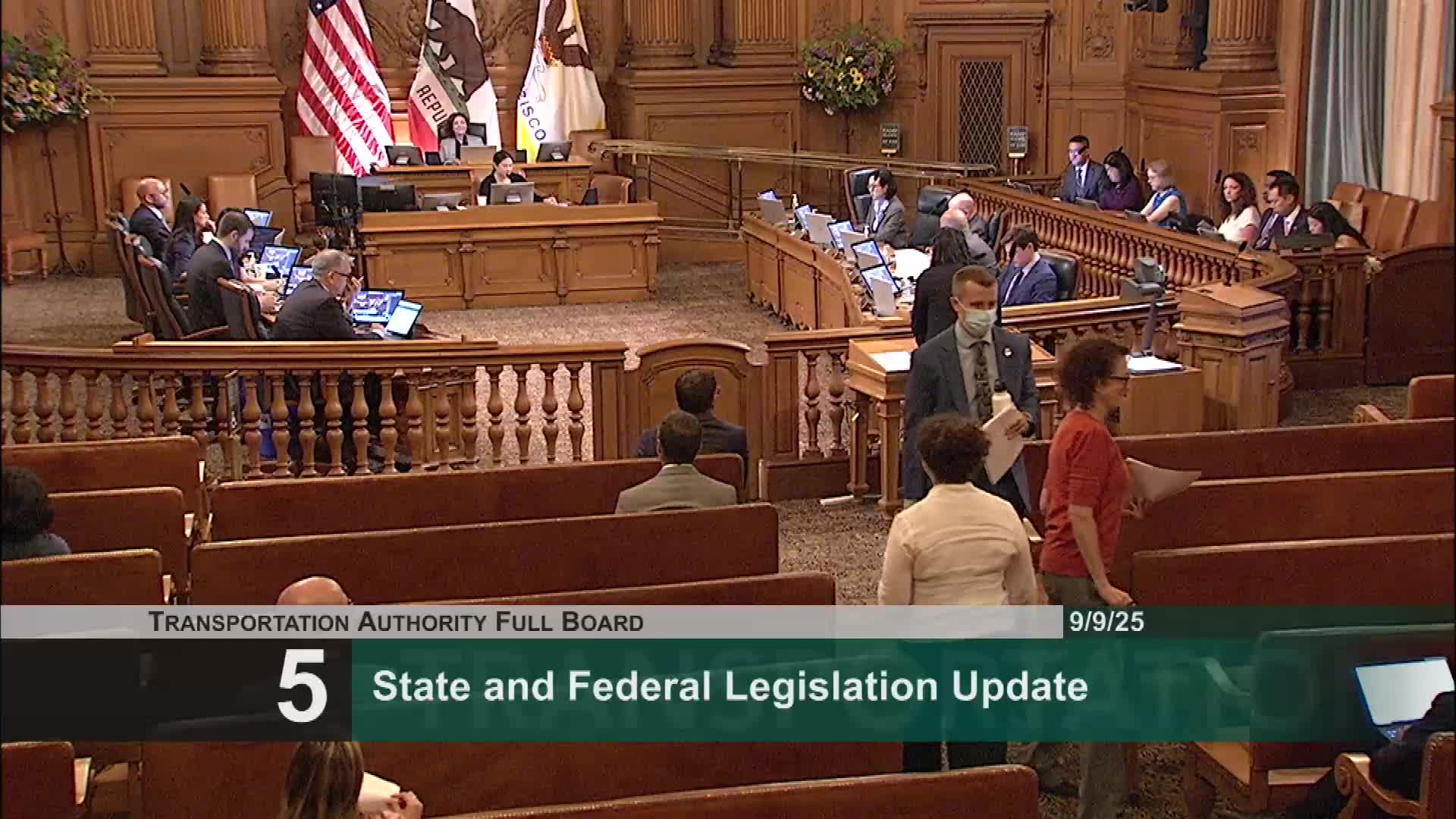
Board approves $14.34 million in Prop L allocations for bus overhauls, traffic signals and slow-streets design; releases $190,000 Prop K for Sanchez Street
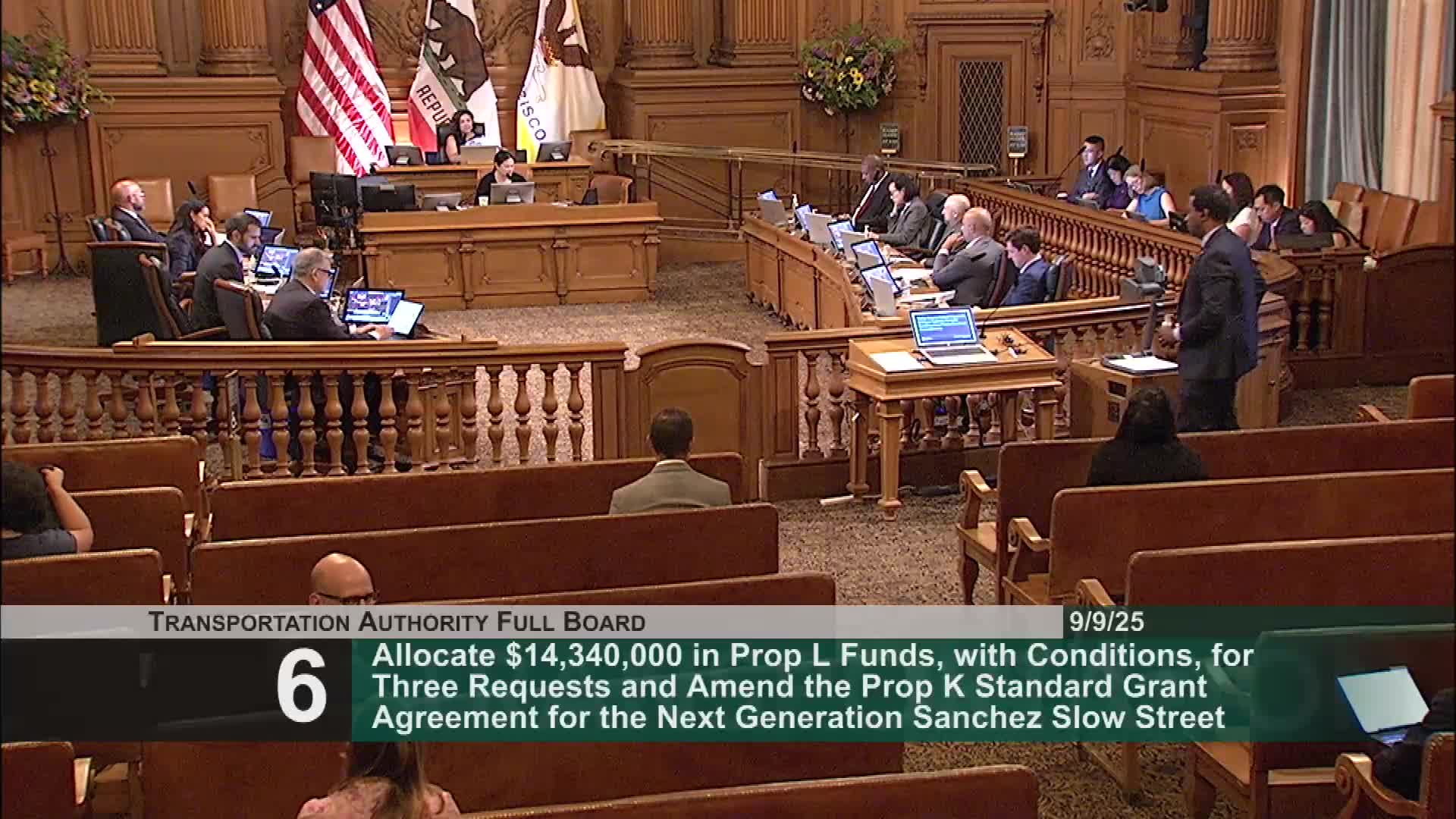
Transportation Authority advances funding package for Yerba Buena Island multiuse pathway and authorizes Westside Bridal construction amendments
